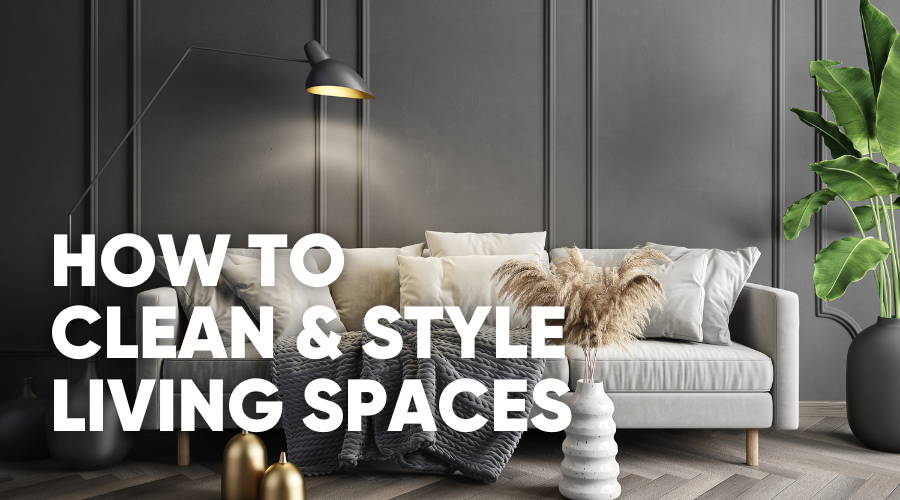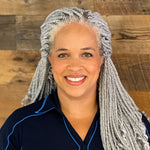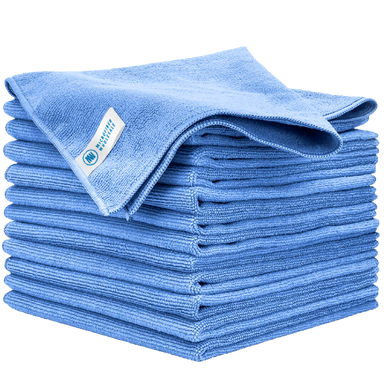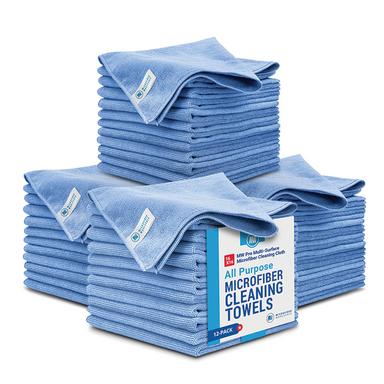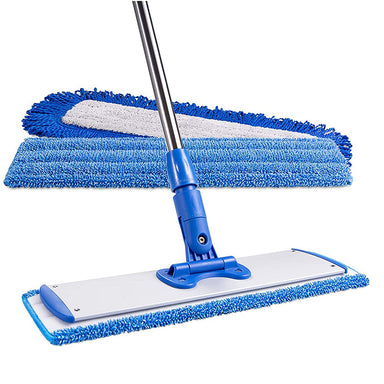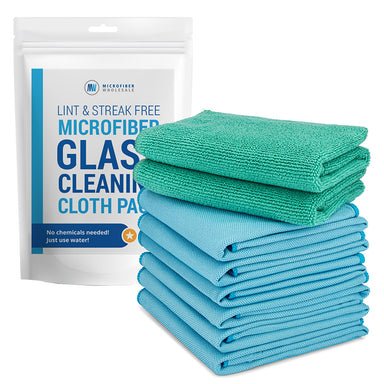Symmetry
The human brain is instinctively attracted to and enjoys symmetrical things, like people's faces. Incorporating symmetry into object placement while cleaning takes advantage of this instinct and makes people find spaces more inviting and calm, even with the same number of items present. Placing items in even rows, triangle groupings, or even simply consistent clusters all work, so long as they have a pattern and a clear center point.
To add symmetry, just lift and wipe under items normally, but instead of carelessly plopping them back, place them deliberately in symmetrical patterns. With practice, your brain will immediately know which types of groupings and patterns work best for different objects like makeup, magazines, spices, papers, and so on, so you'll automatically start putting things down attractively.
Size
Size is Symmetry's sister because they are extremely related and spend a lot of time together. The same part of the brain that enjoys symmetry and patterns also loves gradation in size, like tallest to smallest or vice versa. Lining up things in a row by height, like the signal bars on your smartphone, immediately makes that row look more pleasing and ordered than random highs and lows.
Whether it's toss pillows on a couch or toiletries on a makeup vanity, ordering items tallest to smallest from back to front, along with a symmetrical pattern, ensures everything can be seen and fires up all the cells in the brain that say this place is clean and organized. Even if the toiletries in the group have nothing to do with each other and the cleaner threw them together in 20 seconds as she wiped the table, that makeup display goes from embarrassing to Instagram-worthy without having to Marie Kondo a single tube.
Smooth
Smooth is Symmetry's cousin, as they are also related, but see each other less often. When cleaning and organizing soft surfaces, symmetry is still key, but smoothness is what seals the deal. If you make a bed all rumpled, it doesn't matter the order in which the pillows are placed. If you asked a group of consumers to look at two couches that were vacuumed with equal thoroughness, but one had the toss pillows, blankets, and cushions placed in order, folded, and smoothed, nine out of 10 would rate the smooth couch as cleaner.
This trick is critical to making even worn-out furniture pieces go from drab to fab with minimal extra effort. In some cases, smoothing can even be taken up an additional notch by creating patterns as you smooth! Swiping zigzags into microsuede chairs and couches as you vacuum and wipe them off, vacuuming Ws into carpets as work takes minimal extra time or effort but makes everything feel cleaner, newer, and more orderly!
Scent & Shine
Scent and Shine are our other set of sisters! These are the two principles we use to take advantage of another hardwired human instinct, the way humans instinctively identify cleanliness. In our caveman days, long before ATP testing swabs, the only way we had to tell if food or surfaces were safe enough for us to touch and eat as if it smelled pleasant and looked free of dirt. As a result, we've learned an almost instinctual association between fresh smell, shine, and cleanliness.
Even though they aren't the truest measure (you can smear polish on dirty surfaces and force them to shine, or spray dirty old cars with new car fragrance), they’re critical to making people feel comfortable in the spaces you are cleaning. Simply put, even if you scrub till the cows come home, if it smells stale and nothing shines, people will subconsciously feel like the space is dirtier than it is.
Taking the time to treat couches, carpets, and drapes with fabric or linen spray and selecting pleasant-smelling cleaners is a minimal investment for a major reward. Taking an extra second to buff out streaks on at least a few focal point items like a coffee table or big mirror can make the entire room around it feel cleaner.
Special Touches
Special touches are usually only reserved for the most experienced professional cleaners, and it is only the Jedi Master Levels among them that truly appreciate how powerful they can be. Special touches on the surface are very simple.
They aren’t actually cleaning anything so much as artistically presenting the cleaned space back to the client, so they feel that the cleaner cares about their happiness and sees them as “special”. Folding the end of the toilet paper roll into a triangle or fancy flower, folding hand towels into swans, and tucking a child’s beloved teddy bear into their freshly made bed so it appears to be napping, are all examples of “special touches.”
These special touch tricks make cleaners seem more skilled, their spaces feel more well cared for, and their tips skyrocket. Proof of the power of this tool is easily found in the vacation industry. Even if you have never been on a cruise or to a fancy hotel, you are probably aware that folding towels into swans and toilet paper into triangles is part of the experience because it is those images that make their way onto vacation review sites and people’s Instagram of their trip. Regardless of how many hours the cleaner spent scrubbing their room, it’s towel monkey everyone remembers years later!
Whether you clean professionally or for your family, this trick can transform your cleaning experience and your results. To be honest, there’s such a feeling of joy and pride that comes from cleaning for people you care for and seeing their faces light up when they notice a touch you added to make them feel special, which can help motivate you through even some of the toughest cleans. For the person on the receiving end, special touches light up all the right dopamine receptors in their brain, making one cramped and tattered space feel cozy and well-loved.
Special touches refocus the consumer's gaze, making them less focused on every last stray hair or missed dust bunny, and instead allow them to take in the overall beauty of their freshly cleaned space. If you have picky customers or family members who never seem to be satisfied, you might be surprised that the answer is rarely scrubbing harder and instead making them “feel” cleaner, which has far more to do with the 6Ss than any soap or towel.








